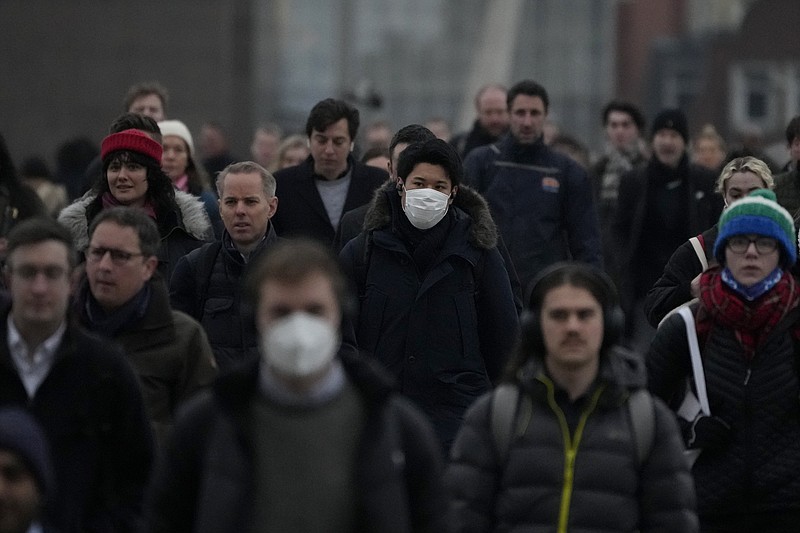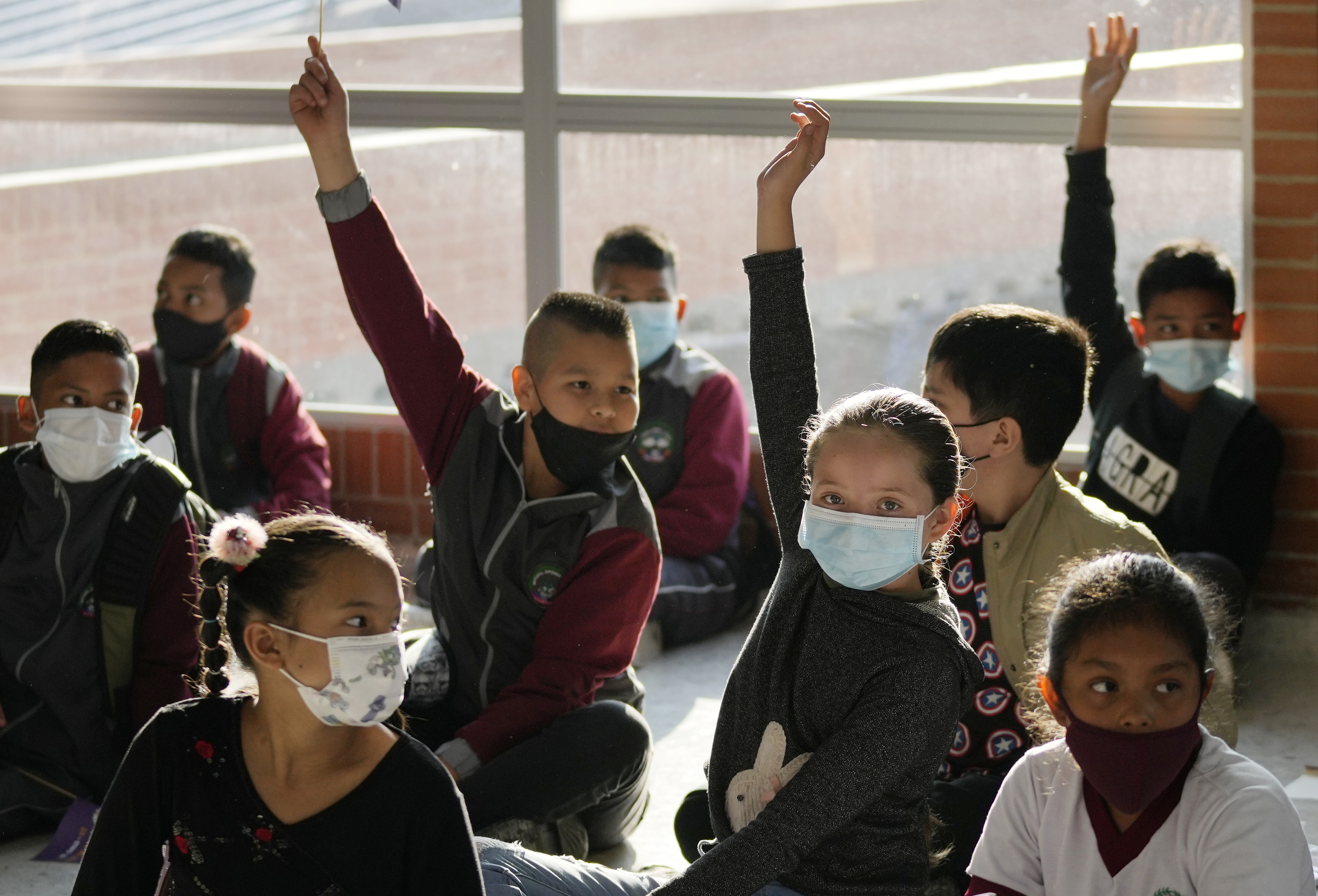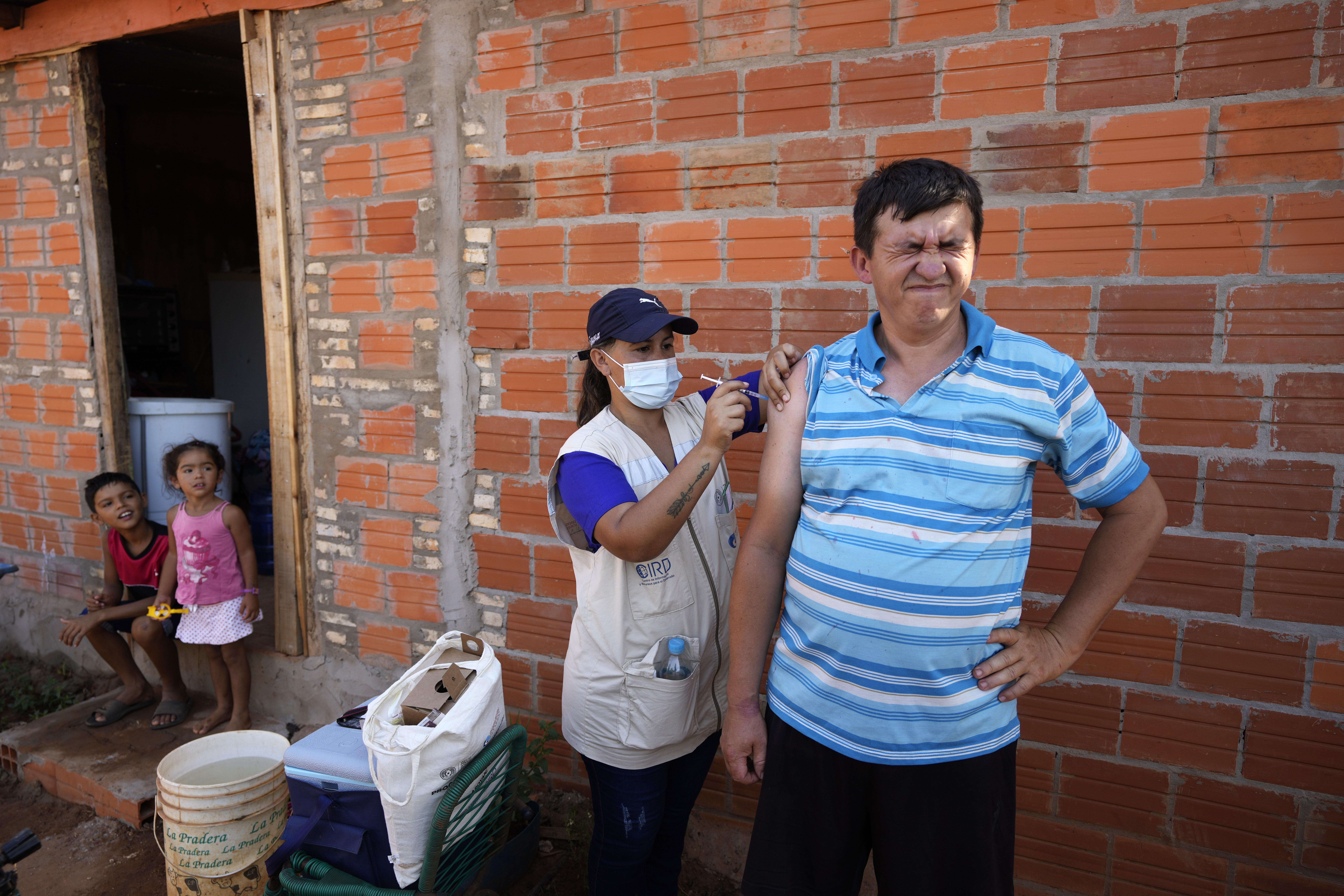World health officials are offering hope the ebbing of the omicron wave could give way to a new, more manageable phase of the COVID-19 pandemic, even as they warn of difficult weeks ahead and the possibility of another, more dangerous variant arising.
In the U.S., cases have crested and are dropping rapidly, following a pattern seen in Britain and South Africa, with researchers projecting a period of low spread in many countries by the end of March. Though U.S. deaths -- now at 2,000 each day -- are still rising, new hospital admissions have started to fall, and a drop in deaths is expected to follow.
The encouraging trends after two years of coronavirus misery have brought a noticeably hopeful tone from health experts. Rosy predictions have crumbled before, but this time they are backed by what could be called omicron's silver lining: The highly contagious variant will leave behind extremely high levels of immunity.
On Sunday, Dr. Anthony Fauci talked on ABC "This Week" about a "best-case scenario" where COVID-19 would fall to manageable levels so the United States could get "back to a degree of normality."
And on Monday, the World Health Organization issued a statement anticipating an end to the "emergency phase" of the pandemic this year and saying the omicron variant "offers plausible hope for stabilization and normalization."
Both Fauci and the WHO's Europe regional director, Dr. Hans Kluge, cautioned new variants are likely to emerge, but with vaccination, new drug therapies and -- during surges -- testing and masks, the world could reach a less disruptive level of disease in which the virus is, as Fauci put it, "essentially integrated into the general respiratory infections that we have learned to live with."
In the U.S., new cases are averaging a still extraordinarily high 680,000 a day, down from an all-time peak of over 800,000 a little more than a week ago.
The places in the U.S. where omicron struck first are seeing the sharpest declines. New cases in the Northeast are nose-diving, while other states -- Arizona, Texas, Oregon, Kansas and North Dakota among them -- are still waiting for relief.
Falling, too, are new U.S. hospital admissions of patients with confirmed COVID-19. They are averaging nearly 20,000 per day, down about 7 percent from the previous week, according to the Centers for Disease Control and Prevention.
Those numbers include patients who went to the hospital for other reasons and tested positive. But even after accounting for these incidental infections, the trend is hopeful.
One influential model projects nearly all nations will be past the omicron wave by mid-March, including China and other countries with "zero COVID" policies. The wave will leave behind high levels of immunity -- both from infection and vaccination -- that could lead to low levels of transmission for many weeks or months.
"What do we end up with at the end of this?" said Dr. Christopher Murray of the University of Washington, who developed the closely watched Institute for Health Metrics and Evaluation model. "We end up with the highest levels of global immunity that we've seen in the pandemic."
The model estimates 57 percent of the world's population already has been infected with the virus at least once.
Another research group, which combines several models and shares the projections with the White House, predicts a strong decline in U.S. infections by April, unless a new variant emerges that can sidestep the growing levels of immunity.
"It would be dangerous to forget that possibility, as it has caught us before," said Katriona Shea, of Pennsylvania State University, a leader of the team that pulls together the models.
She noted, too, the projections show 16,000-98,000 more Americans dying before the omicron wave is through. The U.S. death toll stands at close to 870,000.
"Even if we project a more optimistic future, right now we still have a lot of COVID spreading, a lot of strain in our hospital systems, and our deaths have not yet peaked," said Lauren Ancel Meyers, director of the University of Texas COVID-19 Modeling Consortium.
"There's still a lot of pain before omicron has run its course," she said, but added: "It's very plausible that omicron will be a turning point in terms of our relationship with this virus."
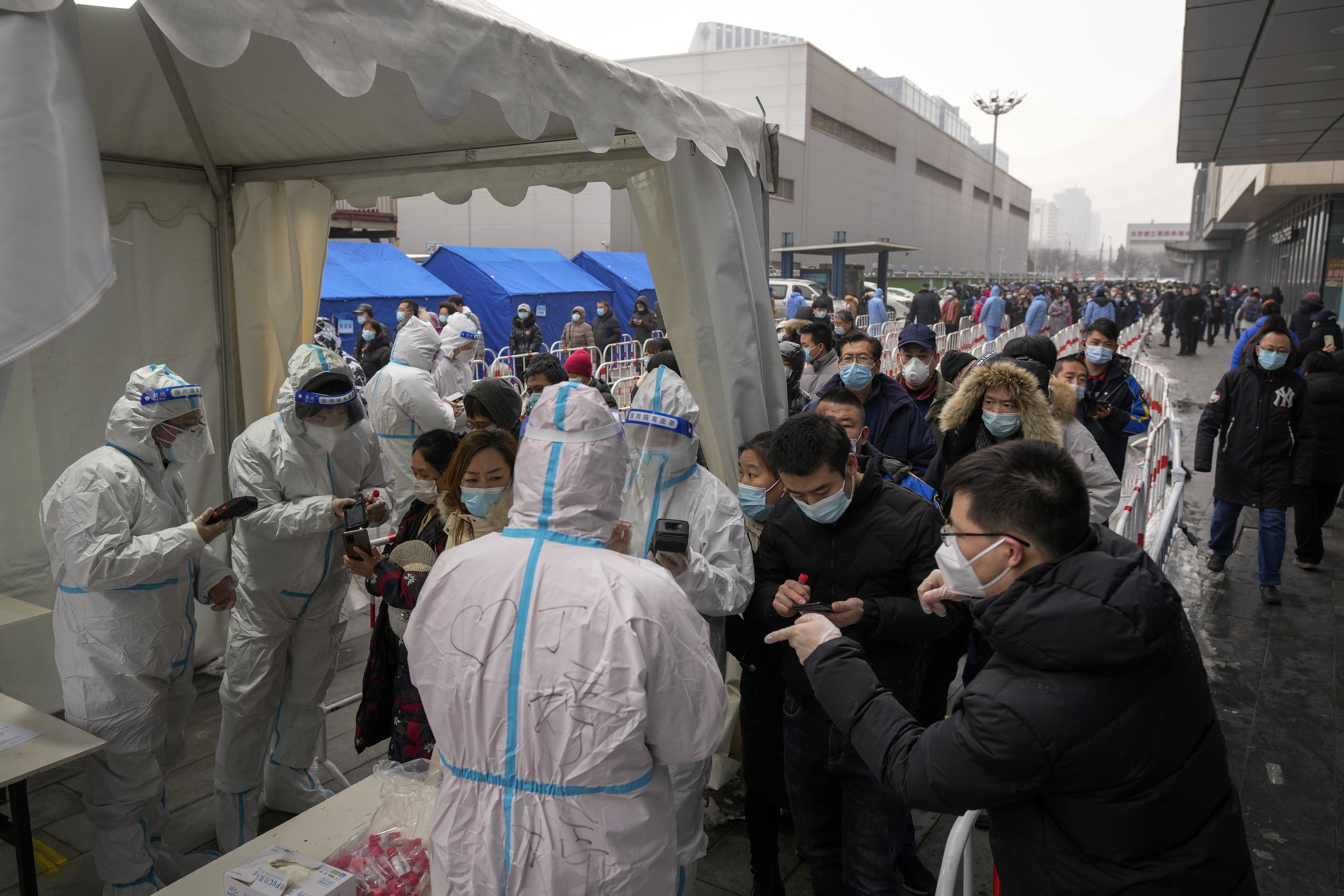 Medical workers scan codes on people's smartphones at a mass coronavirus testing site in Beijing, Monday, Jan. 24, 2022. Chinese authorities have lifted a monthlong lockdown of Xi'an and its 13 million residents as infections subside ahead of the Winter Olympics. Meanwhile, the 2 million residents of one Beijing district are being tested following a series of cases in the capital. (AP Photo/Andy Wong)
Medical workers scan codes on people's smartphones at a mass coronavirus testing site in Beijing, Monday, Jan. 24, 2022. Chinese authorities have lifted a monthlong lockdown of Xi'an and its 13 million residents as infections subside ahead of the Winter Olympics. Meanwhile, the 2 million residents of one Beijing district are being tested following a series of cases in the capital. (AP Photo/Andy Wong) People walk past face masks displayed for sale in St. Petersburg, Russia, Monday, Jan. 24, 2022. Daily new coronavirus infections in Russia have reached an all-time high and authorities are blaming the highly contagious omicron variant, which they expect to soon dominate the country's outbreak. (AP Photo/Dmitri Lovetsky)
People walk past face masks displayed for sale in St. Petersburg, Russia, Monday, Jan. 24, 2022. Daily new coronavirus infections in Russia have reached an all-time high and authorities are blaming the highly contagious omicron variant, which they expect to soon dominate the country's outbreak. (AP Photo/Dmitri Lovetsky)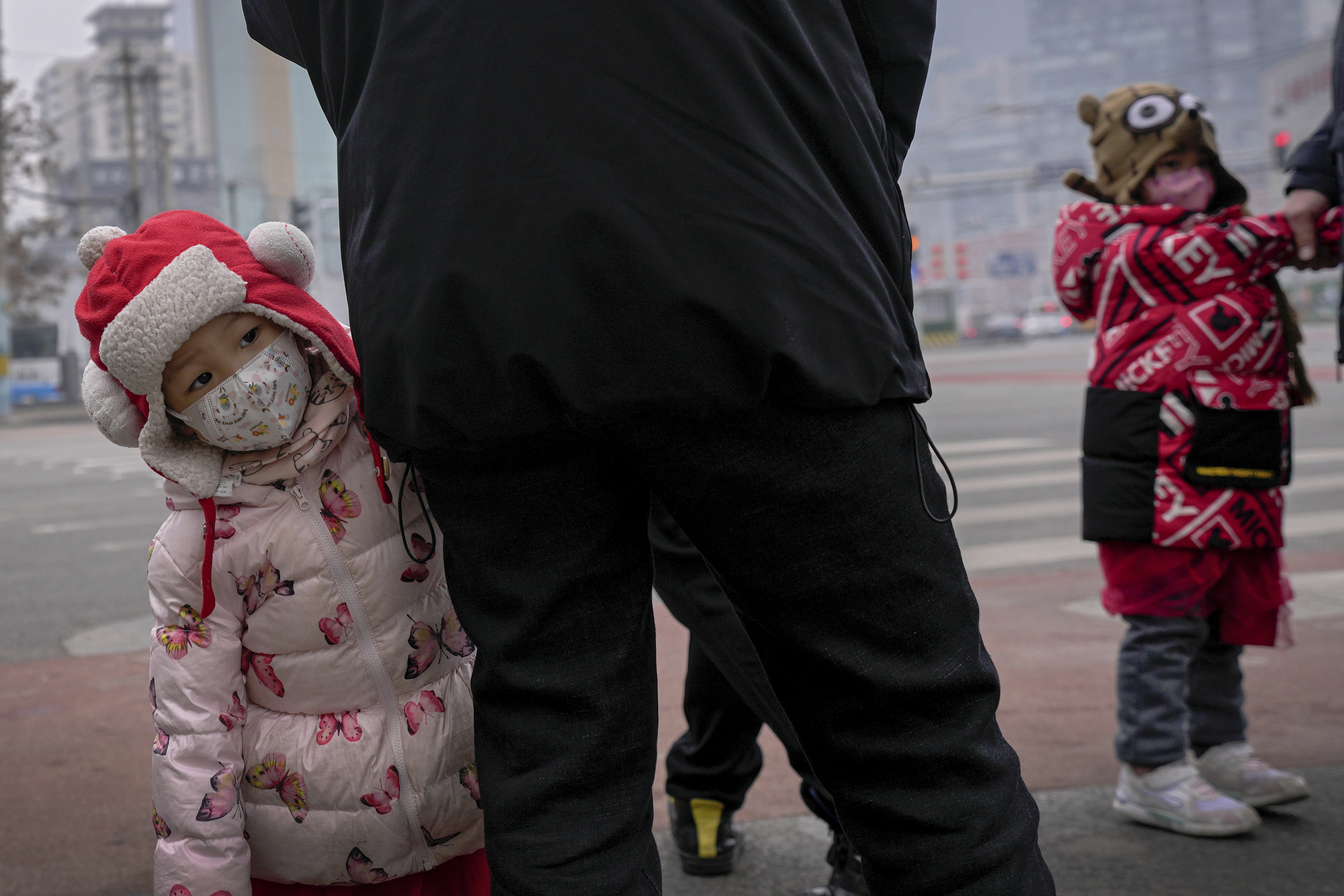 Children wearing face masks to help protect from the coronavirus stand with relatives waiting to cross a traffic intersection in the Central Business District of Beijing, Monday, Jan. 24, 2022. A fresh outbreak in Beijing has prompted authorities to test millions and impose new measures two weeks ahead of the opening of the Winter Olympics, even as Chinese officials on Monday lifted a monthlong lockdown on the northern city of Xi'an and its 13 million residents. (AP Photo/Andy Wong)
Children wearing face masks to help protect from the coronavirus stand with relatives waiting to cross a traffic intersection in the Central Business District of Beijing, Monday, Jan. 24, 2022. A fresh outbreak in Beijing has prompted authorities to test millions and impose new measures two weeks ahead of the opening of the Winter Olympics, even as Chinese officials on Monday lifted a monthlong lockdown on the northern city of Xi'an and its 13 million residents. (AP Photo/Andy Wong)
